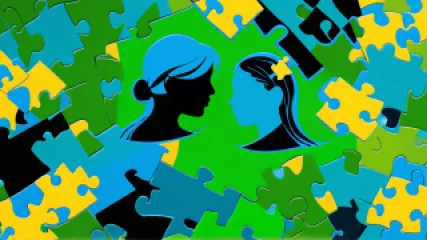How to Recognize Warning Signs for Suicide Prevention
Suicide is a serious issue that affects individuals and communities worldwide. It is essential to recognize the warning signs for suicide prevention in order to provide timely assistance and support to those who may be struggling. By being vigilant and knowledgeable about these signs, we can play a crucial role in saving lives and promoting mental health.
Understanding Suicide
Suicide is a complex phenomenon influenced by various factors, including mental health, personal circumstances, and societal influences. It is often a result of overwhelming distress or an inability to cope with emotional pain. While not everyone who experiences these challenges will attempt suicide, it is important to be aware of the warning signs to intervene when necessary.
The Importance of Suicide Prevention Education
Suicide prevention education is vital in raising awareness and equipping individuals with the knowledge and skills needed to identify and respond to warning signs effectively. Through education and training, we can learn how to support individuals in crisis, connect them with appropriate resources, and ultimately save lives.
Recognizing Warning Signs
Warning signs for suicide can vary from person to person. It is important to remember that these signs are not definitive proof of suicidal ideation, but rather indicators that someone may be at risk. If you notice any of the following signs, it is crucial to take them seriously and seek help:
- Verbal Cues: Expressing feelings of hopelessness, talking about wanting to die, or making statements about not wanting to live.
- Behavioral Changes: Engaging in risky or self-destructive behaviors, withdrawing from social activities, or giving away possessions.
- Mood Swings: Exhibiting extreme mood swings, including sudden calmness after a period of depression.
- Isolation: Withdrawing from family and friends, avoiding social interactions, or expressing feelings of loneliness.
- Sudden Improvement: Sometimes, individuals who have been struggling with suicidal thoughts may suddenly appear happier or more at peace. This could indicate that they have made a decision to end their life.
- Preoccupation with Death: Frequently talking or joking about death, researching suicide methods, or showing an excessive interest in morbid themes.
- Sleep Disturbances: Experiencing significant changes in sleep patterns, such as insomnia or excessive sleeping.
- Loss of Interest: Losing interest in activities once enjoyed, neglecting personal hygiene, or experiencing a decline in academic or work performance.
- Increased Substance Use: Engaging in excessive alcohol or drug consumption as a way to cope with emotional pain.
If you observe any of these warning signs in someone you know or suspect, it is essential to take immediate action to ensure their safety and well-being.
Steps for Suicide Prevention
If you believe someone may be at risk for suicide, it is crucial to follow these steps:
- Engage in Active Listening: Provide a safe and non-judgmental space for the person to express their feelings. Listen attentively and empathetically, allowing them to share their struggles openly.
- Express Concern: Let the person know that you are genuinely concerned about their well-being and that you are there to support them.
- Ask Directly: Although it may be challenging, ask the person directly if they are having thoughts of suicide. This direct question can open up an important conversation.
- Encourage Professional Help: Suggest the importance of seeking professional counseling or mental health assistance. Offer to help them find suitable resources or accompany them to appointments.
- Stay Connected: Maintain regular contact with the person, checking in on their well-being and offering ongoing support. Let them know that they are not alone.
- Involve a Trusted Adult or Professional: If the person is in immediate danger or refuses help, involve a trusted adult, such as a family member, teacher, counselor, or mental health professional who can provide further assistance.
The Role of Support Groups and Counseling
Support groups and professional counseling play a crucial role in suicide prevention and postvention. Support groups provide a safe and understanding environment where individuals can share their experiences, gain support, and learn from others who have faced similar challenges. Professional counseling, such as cognitive-behavioral therapy (CBT), can help individuals develop coping strategies, manage distressing thoughts, and improve their overall mental well-being.
Conclusion
Recognizing warning signs for suicide prevention is an essential step in saving lives and promoting mental health. By being aware of the signs, engaging in active listening, and providing support, we can make a significant difference in someone's life. Suicide prevention education, support groups, and professional counseling are valuable resources that can help individuals navigate through difficult times. Let us join together to create a world where everyone feels supported, understood, and empowered to seek help when needed.






